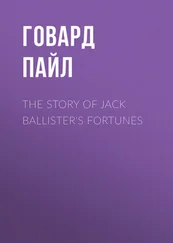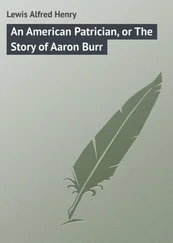Albert Blaisdell - The Story of American History for Elementary Schools
Здесь есть возможность читать онлайн «Albert Blaisdell - The Story of American History for Elementary Schools» — ознакомительный отрывок электронной книги совершенно бесплатно, а после прочтения отрывка купить полную версию. В некоторых случаях можно слушать аудио, скачать через торрент в формате fb2 и присутствует краткое содержание. ISBN: , Жанр: foreign_antique, foreign_prose, Историческая проза, на английском языке. Описание произведения, (предисловие) а так же отзывы посетителей доступны на портале библиотеки ЛибКат.
- Название:The Story of American History for Elementary Schools
- Автор:
- Жанр:
- Год:неизвестен
- ISBN:http://www.gutenberg.org/ebooks/34600
- Рейтинг книги:5 / 5. Голосов: 1
-
Избранное:Добавить в избранное
- Отзывы:
-
Ваша оценка:
- 100
- 1
- 2
- 3
- 4
- 5
The Story of American History for Elementary Schools: краткое содержание, описание и аннотация
Предлагаем к чтению аннотацию, описание, краткое содержание или предисловие (зависит от того, что написал сам автор книги «The Story of American History for Elementary Schools»). Если вы не нашли необходимую информацию о книге — напишите в комментариях, мы постараемся отыскать её.
The Story of American History for Elementary Schools — читать онлайн ознакомительный отрывок
Ниже представлен текст книги, разбитый по страницам. Система сохранения места последней прочитанной страницы, позволяет с удобством читать онлайн бесплатно книгу «The Story of American History for Elementary Schools», без необходимости каждый раз заново искать на чём Вы остановились. Поставьте закладку, и сможете в любой момент перейти на страницу, на которой закончили чтение.
Интервал:
Закладка:
Pocahontas became a great favorite with the nobility, and was even received at court by the queen. But, for all that, she soon became homesick. Even amid the splendid novelties of London life, she longed to be once more among the noble forests and the lovely wild flowers of her old Virginia home. It was in the year 1617 that she prepared, with many pleasing anticipations, to return to the scenes of her childhood. But she suddenly sickened and, after a brief illness, died. She was only twenty-two years old. She left an infant son who came eventually to Virginia, and there grew to a worthy manhood. Many excellent families of Virginia are today proud to claim him as their ancestor.
35. The Troubles of the Colonists increase.– When Captain Smith, after his romantic rescue, returned to the colonists, he found them in a pitiful condition. During his absence the prospect had become in every way gloomy. Hunger and sickness had reduced their number from over a hundred men to only forty, and these were planning to go back to England.
At this distressing time another vessel arrived from England bringing one hundred and twenty immigrants. This event brightened the darkly drooping spirits of the colonists. But the sunshine did not last long. These new-comers, like the old, were mostly idlers and "vagabond gentlemen," as the settlers called them. "We did not come here to work," they said. "Then you shall not eat," said the brusque leader. He was as good as his word. They soon found they must work or starve.
36. The Greed of the Colonists for Gold.– One trouble that annoyed Captain Smith very much was this: the English people kept urging the colonists to send home gold. Those that arrived later, like those that came before, had no idea of working for a living, but only the hope of shoveling up gold to carry away.
They were so ignorant of minerals that, finding in the soil small yellow scales of shining mica, they sent home bushels and bushels of it, believing it to be gold. Another group of men supposed the little glittering crystals of iron ore were really gold, and they spent weeks in collecting the worthless stuff to send to England. No wonder Captain Smith, although the leader of the colony, had hard work to manage and feed men who would far rather dig "fool's gold" than raise corn.
37. The Starving Time in Virginia.– All this happened while Smith was using the utmost wisdom and skill to guide the colony for the best. On one unhappy day a bag of gunpowder exploded near him, burning him so badly that he had to return to England for surgical treatment. This was in September, 1609. After he had gone, the colonists fell into still greater trouble, and the "starving time" followed. The people were compelled to eat dogs, rats, snakes, and toads; many died of starvation; four hundred and ninety men were reduced to sixty; but, by the fortunate arrival of more vessels, help finally came.
Within the next few years the colony was set upon its feet, and the foundations laid of a prosperous commonwealth. An energetic governor, Sir Thomas Dale, made the idlers till the ground and promptly hanged the criminals. The soil was found the best in the world for growing tobacco. Hundreds of skilled farmers came over to Virginia to make their fortunes by the cultivation of this fragrant weed.
38. Further Explorations along the Coast.– Having at length recovered from his wound, Smith scorned to remain idle, and became anxious to undertake another maritime enterprise. There was at that time a great deal of excitement in England about North Virginia, then so called. In 1614 he sailed again with two vessels on a voyage of discovery in that region.
He touched first the shores of Maine, the nooks and corners of which he explored; he then sailed along the ocean fringe from Penobscot Bay to Cape Cod. He examined the coast carefully, entered the bays and rivers, and named a number of prominent islands and capes. He sailed around Cape Ann. To the three islands off the end of the cape he gave the queer name of Three Turks' Heads. He prepared very carefully a map of the whole country, as far as he had seen it, and he called it New England.
On his return to England Smith presented his map to the king's son, Prince Charles, who confirmed the name that had been given to it. Next year he started out again. His object was to found a colony in New England, a region of which he had great hopes. But his vessel was captured by a French man-of-war, and he was taken to France. With a return of good fortune this hero of surprising deeds escaped, and finally got back safely to England.
39. His Last Days; the "Father of Virginia."– Our bold explorer now gave up all plans of founding another colony in America. But he lived to know and rejoice in the success of the Pilgrims and the Puritans in Massachusetts. He wrote several books describing his travels and his wonderful adventures.
He had shown himself vigorous, quick-witted, far-seeing. He had been the ruling spirit and the preserver of the Virginia colony. In fact, he has often and justly been called the "Father of Virginia." His strong hand had also opened wide the door of New England.
We must think of Captain John Smith as the hero of the first struggle of English civilization with the wilderness of America. Wherever he was, his genius and resolute will had made him a leader. There was never a braver man. After a life full of romantic adventures and daring exploits, he died in London in 1631 at the age of fifty-two.
CHAPTER IV.
THE STORY OF THE PILGRIMS
40. The Old-Time Idea about Kings.– We shall do well to remember that in England, about three hundred years ago, the sovereign's will commonly had the force of law. Many people really thought there was such sacredness about a royal ruler that whatever he commanded must be right, whatever he forbade must be wrong. Indeed, there was a proverb, "The king can do no wrong." He had his own kind of church and his own mode of worship. Everybody must attend that sort of church and practise that form of worship, or be punished.
41. Sturdy Englishmen dare to disobey the King.– But there were, after all, many honest, sturdy people in England who did not accept this notion about the king. They did not like his style of religion, and they would not pretend to like it. Besides, they felt that they had a right to meet quietly by themselves, publicly in their own churches, or privately in their own homes, and worship in their own way.
But these people were regarded with suspicion. Presently a number of them were seized and thrown into loathsome jails; not a few were heavily fined or made to suffer bodily harm; some died on the gallows; and all this because, in spiritual affairs, they had dared to disobey the monarch.
42. The Pilgrims seek a Home in Holland; the First Attempt a Failure.– Those who were brave enough to oppose the king's despotism in religious matters were at first styled Separatists, because they separated from the "established church." Afterwards some of them came to be called familiarly Pilgrims, because they wandered from place to place on the way "to heaven, their dearest country," as they said. They longed to go where they could be free to worship God as they pleased.
At last a company of them hired a vessel to take them just across the North Sea to Holland. They chose Holland, because in that country all people were allowed to worship as they thought best.
But just before the hour at which they had intended to embark, watchful officers found them, seized most of their money and goods, dragged them back, and put them in prison. It was indeed a pretty hard lot, punished if they stayed in the country, and punished if they tried to get away!
Читать дальшеИнтервал:
Закладка:
Похожие книги на «The Story of American History for Elementary Schools»
Представляем Вашему вниманию похожие книги на «The Story of American History for Elementary Schools» списком для выбора. Мы отобрали схожую по названию и смыслу литературу в надежде предоставить читателям больше вариантов отыскать новые, интересные, ещё непрочитанные произведения.
Обсуждение, отзывы о книге «The Story of American History for Elementary Schools» и просто собственные мнения читателей. Оставьте ваши комментарии, напишите, что Вы думаете о произведении, его смысле или главных героях. Укажите что конкретно понравилось, а что нет, и почему Вы так считаете.












